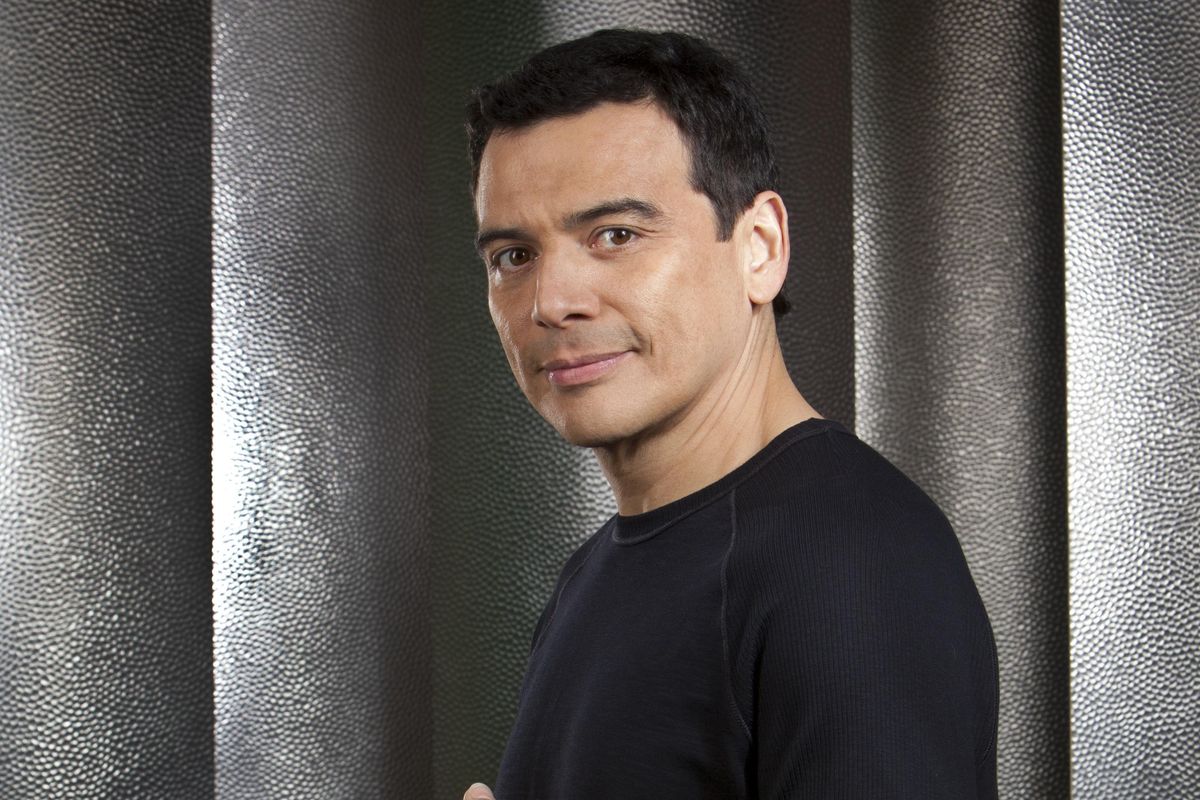Comedian Carlos Mencia works to keep his fans, himself happy

At the end of the day, Carlos Mencia just wants to be happy. In fact, it’s vital to his success as a comedian.
“I bring happiness and in order for me to bring happiness, I must be happy,” he said while on the way to the airport to fly to Charlotte, North Carolina, for a weekend of shows.
Mencia’s extensive tour schedule brings him to Spokane for yet another weekend of shows, kicking off Thursday at the Spokane Comedy Club.
To maintain his happiness, Mencia holds meet and greets with fans before shows and said he often gets more out of them than they do.
He tells a story about fans who drove from Montana to see him the last time he was in Spokane, mentioning the hours they spent on the road, plus the cost of tickets and a hotel room.
Mencia said stories like that give him perspective and inspire him to do an even better job of entertaining the audience.
“It’s responsibility, but in a good way, not in a heavy way, in a happy way,” he said. “I’m responsible for these people’s happiness, and guess what? I know how to make them happy.”
Mencia has been making fans happy for nearly 30 years now, beginning with his performances at Los Angeles’ famed Comedy Store. These sets eventually led to two HBO specials, his first comedy album, “Take a Joke America,” and an appearance on “Comedy Central Presents.”
In 2005, three years after “Comedy Central Presents,” the network went all in on the comedian, giving him his own show called “Mind of Mencia.”
Things were looking up for Mencia, but in the same year, comedian Joe Rogan accused him of plagiarizing jokes from several comedians, a sentiment comedian George Lopez would go on to second with claims that Mencia had plagiarized his material.
These accusations left a dent in Mencia’s career but didn’t completely derail it; “Mind of Mencia” ran for four seasons, and the comedian released his latest special, “Carlos Mencia: New Territory,” in 2011.
With another special in the works (Mencia anticipates material for this new special will make up 80 to 95 percent of his Spokane shows), Mencia has come out on the other side a stronger person, both on and off stage.
He started therapy after the plagiarism accusations arose and references things he learned in the program throughout his interview with The Spokesman-Review.
He’s also spent the last six years “completely nose to the grindstone on the road,” bouncing from airport to theater to airport to club and back again, and he recently launched a podcast and has two television shows in the works.
One is a dark, edgy half-hour, and the other is in the same vein as “Mind of Mencia” and will deal with current events.
Stand-up and a live or daily TV show aren’t too different, but a weekly show, which would require a review of the previous week’s events, would push Mencia slightly out of his comfort zone.
“The way you deliver the material has to be varied, so even if I open up with a monologue, there’s still stuff in between that you have to fill,” he said. “But what that also does is it opens up the creativity. Instead of me just being up on stage and painting you a picture …, I can actually find a more creative way to tell that story.”
Another difference is the teamwork required to produce a television show versus the amount of work Mencia does himself when performing a stand-up set.
“When I’m onstage, I’m the writer, actor, director, producer, everything, whereas to when you do a TV show, you have to …”
Here, Mencia pauses, choosing his words carefully, evidence, perhaps, that therapy and time to reflect has slightly smoothed out the rough edges on the comedian a 2010 Wall Street Journal article said “comedians love to hate.”
“And see, here’s the difference between me today and me years back. I would’ve said ‘relinquish control,’ but that’s not it. What it is is a collaboration so now instead of me having my own ideas and going with those ideas, I have my ideas, writers’ ideas … We intertwine them and find a way to produce segments that are funny.”
He has high hopes that viewers will find these segments funny too, because, as he mentioned, he knows how to make them happy.
And as much as he enjoys working in TV and film, Mencia will always find his way back to what makes him happy.
“Even if I was on the No. 1 TV show and I was making a million-and-a-half an episode, I would still be doing stand-up on the road,” he said. “That will never stop.”